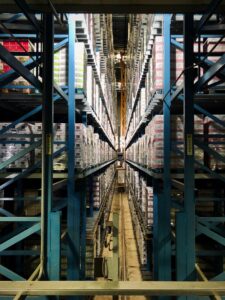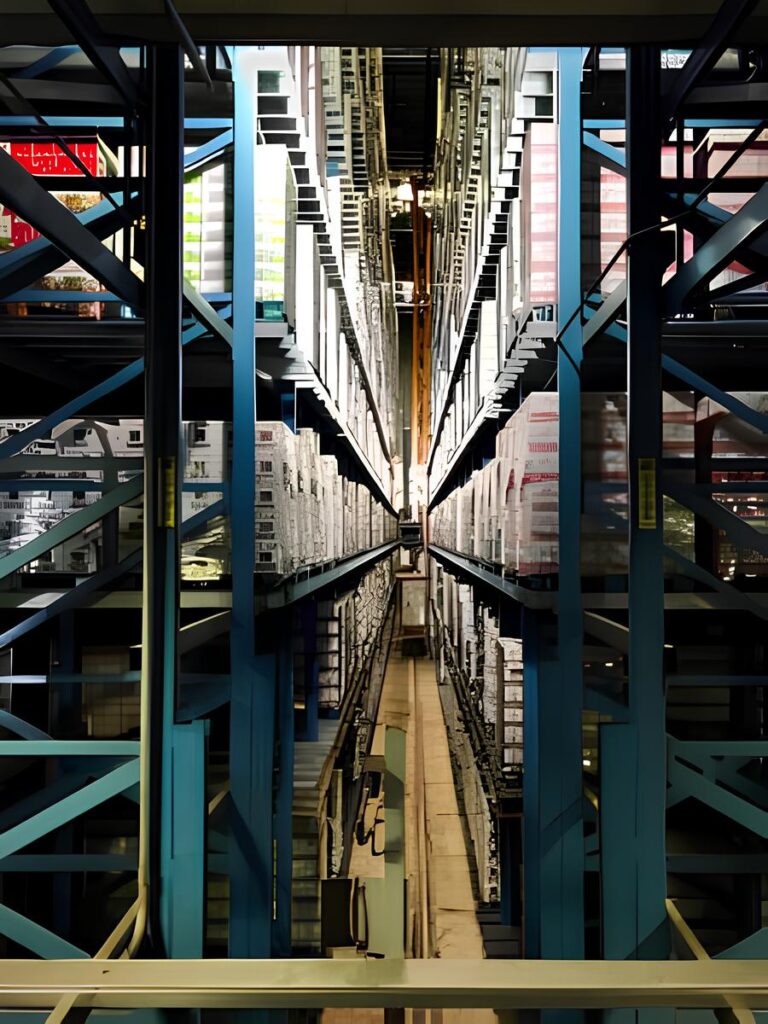There’s a complex system that works around the clock behind the scenes to get an item from its point of origin to the final destination. This system is called logistics. Logistics services help move goods from one point to another. This can be from a warehouse to a customer’s doorstep, a supplier to a manufacturer, or between two companies.
Logistic services go beyond shipping. It includes storage, inventory, packaging, and even a return process. In this blog, we will break down what logistics services involve, types of logistics services, and their benefits.
What Are Logistics Services?
At its heart, logistics is the art of managing the flow of goods from point of origin to its final destination, whatever that may be. It includes all the activities and processes related to this movement, each aimed to ensure that the goods reach where and when they are needed in the best condition.

Logistic services facilitate across complex supply chains, forming the backbone of global trade and e-commerce. Logistics providers also offer other value-added services, such as:
- Order fulfilment
- Inventory management
- Returns processing
- Customs clearance assistance
- Tracking or monitoring assistance
Furthermore, logistics services may look simple on the surface. However, there are several nitty-gritty details that need to be considered. There are various stakeholders involved in the process. Let’s take a closer look.
Five Rights of Logistics
The “Five Rights of Logistics” lay the foundation of efficient logistics operations. These five rights serve as a compass for everyone involved in the process. They are as follows:
- Right Product: Making sure that the right product is delivered as per quality, quantity, and requirement specifications.
- Right Place: The product should be delivered to the right place, be it at a customer’s doorstep, a distributor’s store, or a warehouse.
- Right Time: Make sure that the product reaches the destination at the decided time to meet customer demand or schedules.
- Right Condition: The product should reach the desired condition, without damage or deterioration.
- Right Cost: The process should be completed with the most effective logistics services without compromising on quality.
Key Stakeholders in Logistics Services
Broadly, there are five key stakeholders involved in the process. They are:
- Shippers: Businesses that sell or produce products. They require logistic services for transportation and distribution of their goods.
- Carriers: Carriers offer transportation services, like trucks and cargo.
- Third-Party Logistics (3PL): These businesses offer services such as warehousing and distribution on behalf of shippers.
- Warehouse and distribution centres: These are facilities that store, manage, and distribute products to their final destination.
- Consumers: The end recipient of the products.
Types of Logistic Services
There are various types of logistics services. Each one follows a different model. Here’s an overview of these services.
1. Third-Party Logistics (3PL) Parties
Many businesses outsource their logistics to 3PL providers. These companies handle part or all of the logistics process—like warehousing, transportation, or fulfilment—allowing businesses to focus on core operations.
2. Freight Forwarding
Freight forwarders handle the shipping of goods from the manufacturers to the fulfilment centres. For international shipping, they may offer customs clearance assistance. It is their responsibility to choose the best possible mode of transportation as per the shipper’s requirements.
3. Warehouse Services
Warehouses are responsible for receiving the goods, packing, storing, and dispatching them when required to the customer. eCommerce businesses rely heavily on warehouses across different locations to ensure that their products reach their customers in the shortest possible time.
4. Port Services
Port services managed the transportation of goods by sea, including docking, storing, and moving goods from ships to other means of transport. There’s also stevedoring and cargo services, which include loading and unloading ships properly.
5. Fourth-Party Logistics (4PL)
Unlike 3PL, which takes care of a specific part of the logistics and supply chain, fourth-party logistics (4PL) services manage and integrate all aspects of the process. It’s an operational model whereby the business outsources the entire logistics and supply chain management to an external agent who acts as a single point of contact for the business. They oversee all 3PL aspects and give insights with advanced data to improve operations.
6. Cold Chain Logistics
Cold chain logistics is commonly seen in medical warehousing, the food industry, and any other industry which demands temperature-controlled conditions. Essentially, cold chain logistics ensures that products are stored under temperature-controlled conditions and transported at the right temperature.
Benefits of Logistics Services
Logistic services add significant value to businesses. Here’s how!
1. Faster Delivery Time
Time is everything in today’s on-demand world. Whether it’s next-day delivery for online shoppers or timely restocks for a retail store, efficient logistics ensure that products get where they need to be fast.
Furthermore, modern logistic service providers employ smart routing Local distribution halves and real time tracking tools reduce delays and eliminate bottleneck.This speed helps businesses fulfill more orders quickly, meeting consumer expectations, and gaining a competitive advantage.
2. Cost-Efficiency
Running in house logistics can be expensive since it requires you to hire staff, maintain delivery vehicles, invest in warehouse spaces, softwares and more. It adds up pretty quickly. Outsourcing logistics to a specialist provider helps cut down on these overheads. These providers already have the infrastructure, technology and expertise allowing businesses to avoid large upfront costs and only pay for what they use.
Additionally, logistics experts know the nitty gritty of the process.Thus, helping them streamline operations, consolidate shipments and use data to minimize empty miles and even reduce fuel costs.
3. Smarter Inventory Management
As a business, having too much inventory or too little inventory is risky. Logistics services play an integral role in striking the right pilots. They make use of inventory tracking systems and demand forecasting tools which gives businesses a bird’s eye view of their inventory, helping them manage it in real time. This ensures that the products are there when they’re needed.There is no overload at the warehouse or unsold goods.
In the case of perishable businesses of great significance since it leads to faster turnover and less waste.
4. Easy Scalability
As a business, when you expand to new markets, add more product lines or deal with seasonal spikes in demand, your need for logistics becomes more complex. Logistic services make it easier to scale without pressuring your internal resources. This flexibility allows you to respond quickly to market changes and opportunities without losing momentum or consumer trust.
5. Happier Customers
Efficient logistics services mean that customers enjoy faster shipping, dual time order updates, and easier returns, all of which help you as a business build trust and satisfaction. A positive delivery experience makes customers more likely to return or recommend your business to others.
Conclusion
A lot of species look at logistics as a support function. However, logistics service partners are strategic partners in your business success. They speed up deliveries, cut down costs, improve customer satisfaction, and enable growth.
Naran Precast Concrete Offers premium logistics services for the safe and secure transportation of precast structures. We utilize advanced logistics equipment and vehicles to ensure that these structures are safely transported to your final destination without hassles. Contact us today!

